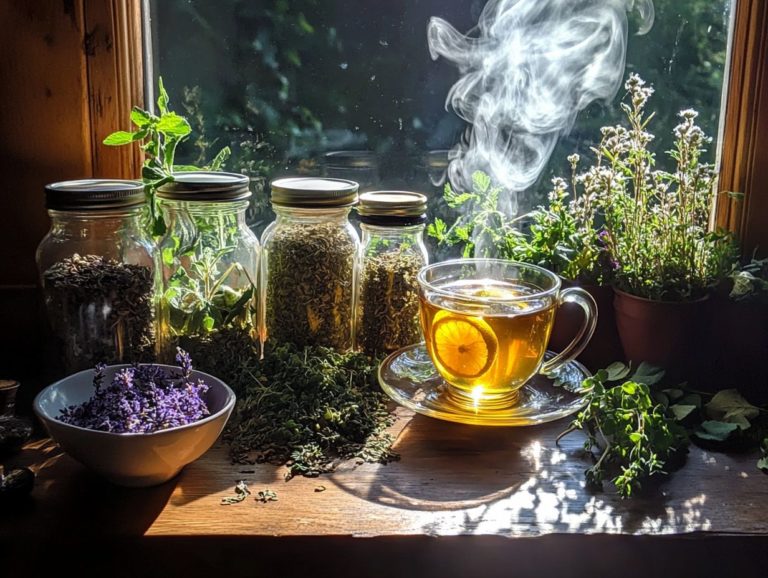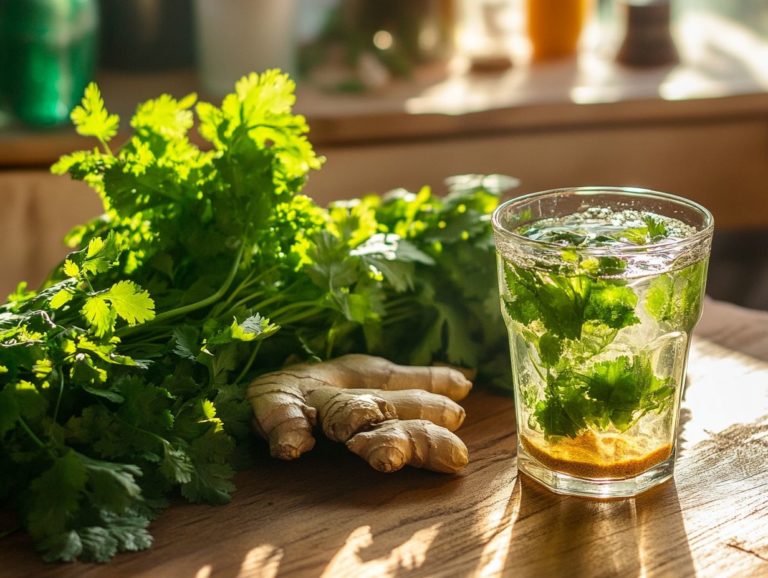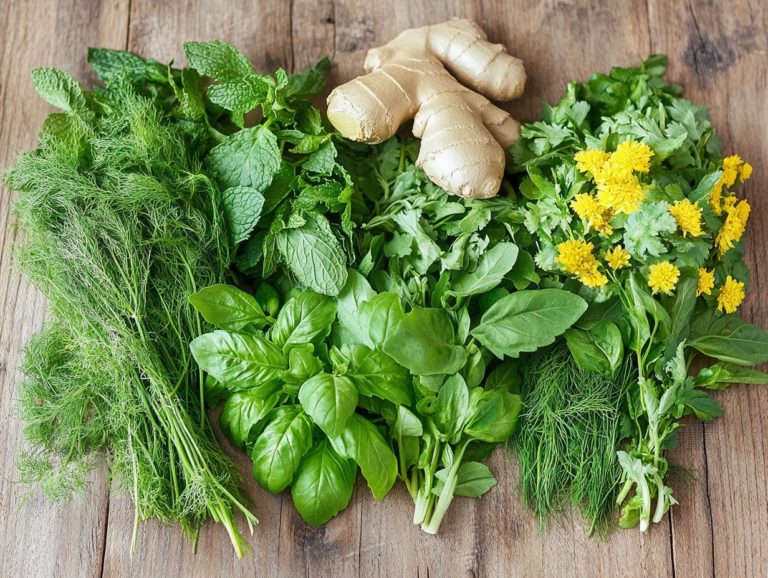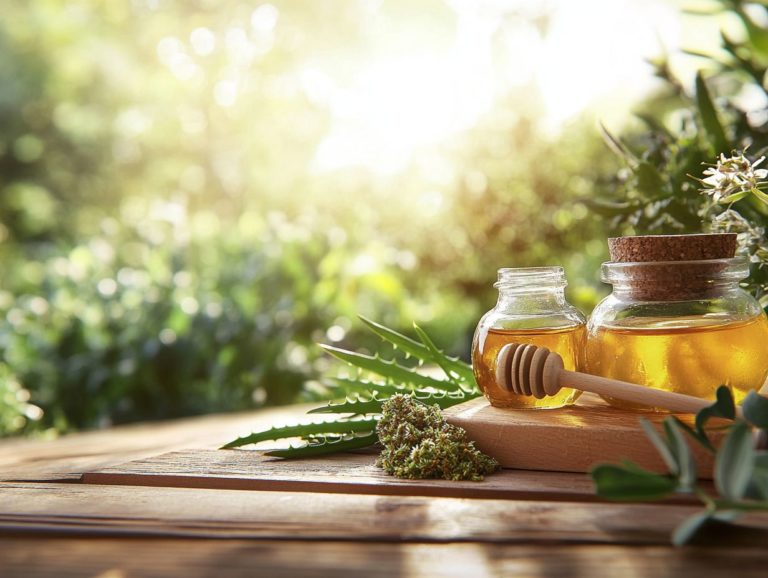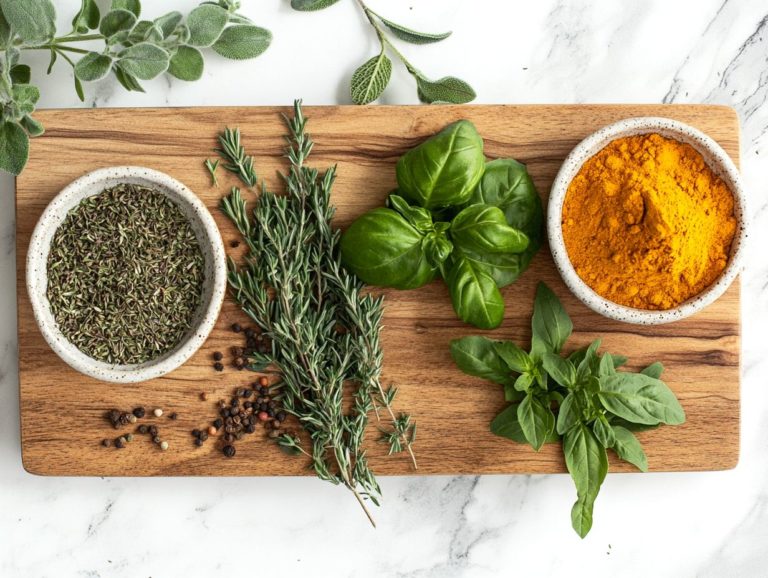Top Herbs for Managing Stress Effectively
Contents
- Key Takeaways:
- Understanding Stress Management
- Herbs for Stress Relief
- How to Use Herbs for Stress Management
- Potential Side Effects and Interactions
- Other Natural Ways to Manage Stress
- Frequently Asked Questions
- What are the top herbs for managing stress effectively?
- How does ashwagandha help in managing stress?
- Can passionflower be used to manage stress in children?
- What are the benefits of using rhodiola for stress management?
- How does lemon balm help in managing stress?
- Is it safe to take valerian root for stress management?
Key Takeaways:
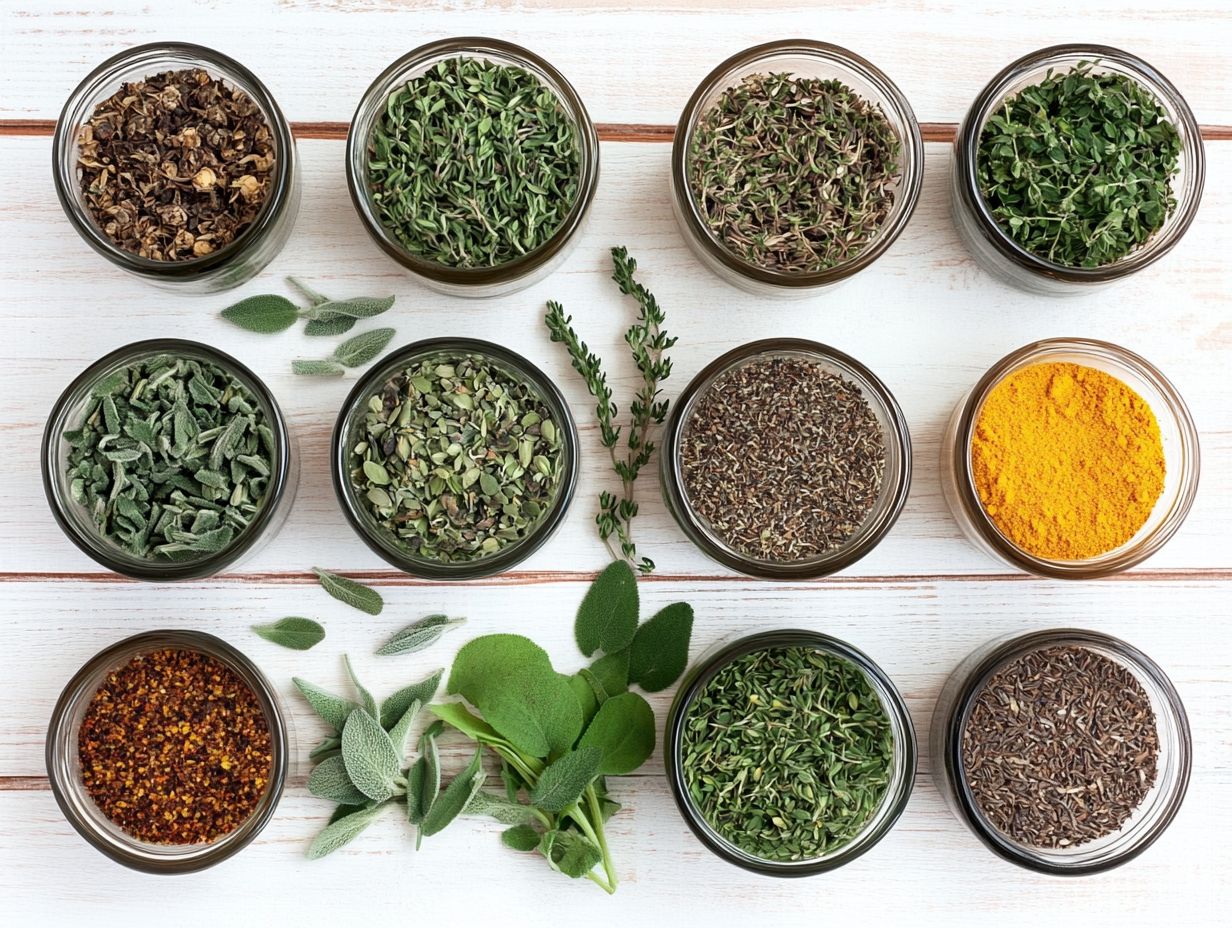
- Incorporating herbs into your routine can effectively manage stress by promoting relaxation, reducing anxiety, and improving overall well-being.
- Some commonly used herbs for stress relief include chamomile, lavender, and passionflower.
- When using herbs for stress management, be sure to follow proper consumption methods, dosage recommendations, and consider potential side effects and interactions.
Understanding Stress Management
Understanding stress management is essential for maintaining your mental health and emotional well-being. In today’s fast-paced world, chronic stress is all too common.
By effectively managing stress, you can positively influence various aspects of your daily life. This enhances your overall quality of life while alleviating anxiety symptoms.
Techniques such as Cognitive Behavioral Therapy, a type of therapy that helps change negative thought patterns, along with certain dietary supplements, can provide valuable support as you navigate emotional stress and anxiety disorders.
What is Stress and How Does it Affect Us?
Stress is a natural response that arises when you encounter challenging situations. It can significantly impact both your mental well-being and physical health over time.
When your body perceives a threat, it activates a series of physiological reactions known as the fight-or-flight response. This biological mechanism ramps up your heart rate, raises blood pressure, and releases hormones like cortisol.
While these responses can be advantageous in short bursts, prolonged exposure can lead to chronic stress. This stress potentially contributes to various mental health issues.
Over time, this constant strain can create emotional turmoil and intensify feelings of anxiety and depression. It can disrupt your everyday life.
Addressing these effects is essential. Unchecked stress can ultimately undermine your overall emotional health and well-being.
Herbs for Stress Relief
Discover why herbs for stress relief are gaining massive popularity! These natural remedies provide a range of calming effects, helping you to ease emotional stress and cultivate a sense of relaxation.
Commonly Used Herbs for Managing Stress

Commonly used herbs for managing stress include kava, passion flower, and chamomile. Each offers unique benefits and varying levels of safety based on the latest research.
Kava has demonstrated its ability to effectively reduce anxiety levels and foster a sense of calm without the sedative effects found in some other herbs. It’s important to note that kava’s safety has sparked discussions due to potential liver toxicity.
Therefore, moderation and a chat with your healthcare provider are highly advisable.
Passion flower has garnered attention for its remarkable ability to enhance sleep quality and alleviate anxiety symptoms. Various studies emphasize its calming properties.
Chamomile, well-renowned for its soothing effects, is often suggested for easing stress and promoting better sleep patterns. Its safety profile is generally favorable, making it a favored choice for relaxation especially when enjoyed as a warm cup of tea.
As you consider integrating these herbs into your stress management routine, be mindful of your personal tolerances and any potential interactions.
How to Use Herbs for Stress Management
Using herbs for stress management presents various consumption methods, including herbal tinctures, teas, and dietary supplements.
Each of these options comes with specific dosage recommendations designed to cater to your individual needs.
Methods of Consumption and Dosage
Methods of consumption for stress-relieving herbs offer a diverse array of options, including herbal teas, tinctures, and capsules. Each method requires your careful attention to dosage and safety guidelines to minimize any potential side effects.
Recognizing this is essential since each approach presents unique advantages and potential downsides. Herbal teas, especially those made from herbs for relieving stress-induced tension, provide a gentle introduction to these plants, allowing for an enjoyable experience and a gradual adjustment period. However, they can also lead to quicker absorption, resulting in more pronounced effects than you might expect.
Tinctures deliver a concentrated form that can be quite potent but necessitate precise measurement to avoid any unwanted side effects. Capsules simplify the dosing process, but they may mask the taste of the herbs, making it easy to overlook their effects altogether.
Understanding the relationship between dosage and your individual sensitivities is crucial for safely navigating the world of herbal consumption.
Potential Side Effects and Interactions
Potential side effects and interactions linked to herbal remedies can present significant risks, especially when used alongside blood-thinning medications or other dietary supplements. Always seek professional guidance for their safe and effective use.
Precautions and Warnings
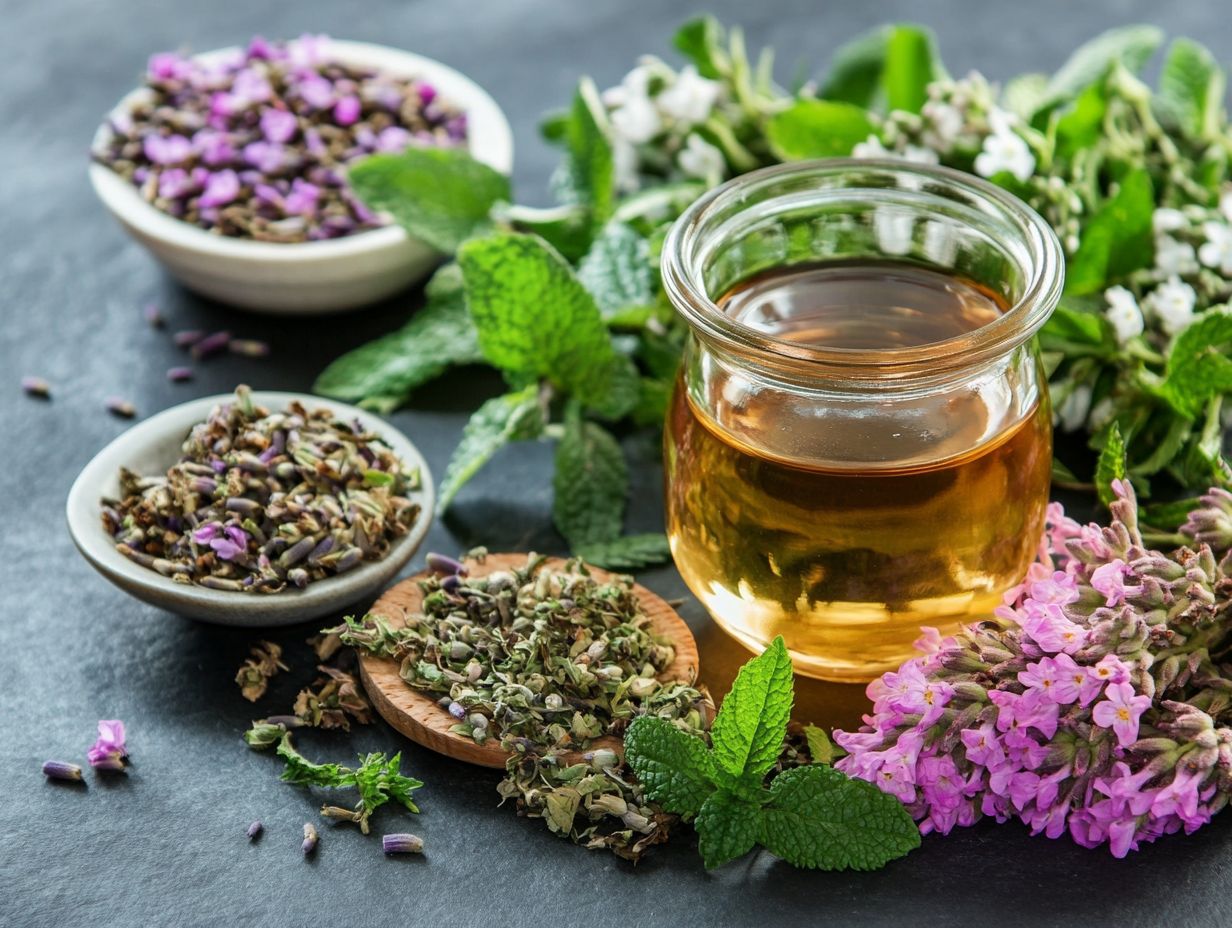
Take precautions now to ensure your safety, particularly if you have pre-existing health conditions or are taking multiple dietary supplements.
Neglecting to consider how different herbs interact with prescribed medications can lead to adverse reactions. Always consult with your healthcare professional for personalized advice before starting any herbal regimen. The complexities of herbal ingredients mean some can enhance or diminish the effects of other substances, potentially leading to harmful side effects.
The dosage of a specific herb can greatly influence its efficacy and safety; therefore, it s imperative that you adhere to recommended guidelines and monitor your response closely.
Building a comprehensive understanding of your health history and discussing it candidly with a knowledgeable practitioner can significantly reduce the risks associated with dietary supplements and help you cultivate a balanced approach to alternative medicine.
Other Natural Ways to Manage Stress
Along with exploring herbal remedies, you can effectively manage stress by making thoughtful lifestyle changes, incorporating regular physical activity into your routine, and choosing mindful dietary options that enhance your overall wellness.
Lifestyle Changes and Practices
Implementing lifestyle changes is essential for effective stress management. Practices like mindfulness meditation, regular exercise, and improved sleep hygiene can significantly enhance your emotional well-being.
By weaving these habits into your daily routine, you foster a more resilient mindset. Mindfulness meditation encourages a deeper awareness of the present moment, helping to calm those racing thoughts that often fuel anxiety. For those seeking additional support, exploring herbal treatments for anxiety relief can be beneficial. Engaging in regular physical activity not only boosts your stamina but also releases endorphins—those delightful natural mood lifters your body produces.
Prioritizing quality sleep allows both your mind and body to recuperate, leading to better decision-making and improved emotional regulation. Together, these changes create a supportive environment for mental clarity and overall health, paving the way for enhanced stress resilience. Exploring 5 must-try herbs for stress management can also be beneficial in your journey towards a calmer mind.
Final Thoughts and Recommendations
Final thoughts and recommendations underscore the significance of integrating a blend of herbal remedies, lifestyle changes, and wellness practices for optimal stress relief and emotional health.
By embracing a holistic approach to stress management, you can tap into the benefits of natural health alternatives that not only ease emotional strain but also enhance mental clarity and overall well-being. Incorporating top DIY herbal remedies for stress relief into your routine can be part of this multifaceted strategy, encouraging a deeper awareness of your body and mind and allowing you to identify personal stress triggers and effectively manage them.
Incorporating practices such as mindfulness, gentle exercise, and a balanced diet alongside herbal solutions can yield transformative results, building resilience against life’s challenges and paving the way for a more tranquil existence.
Frequently Asked Questions
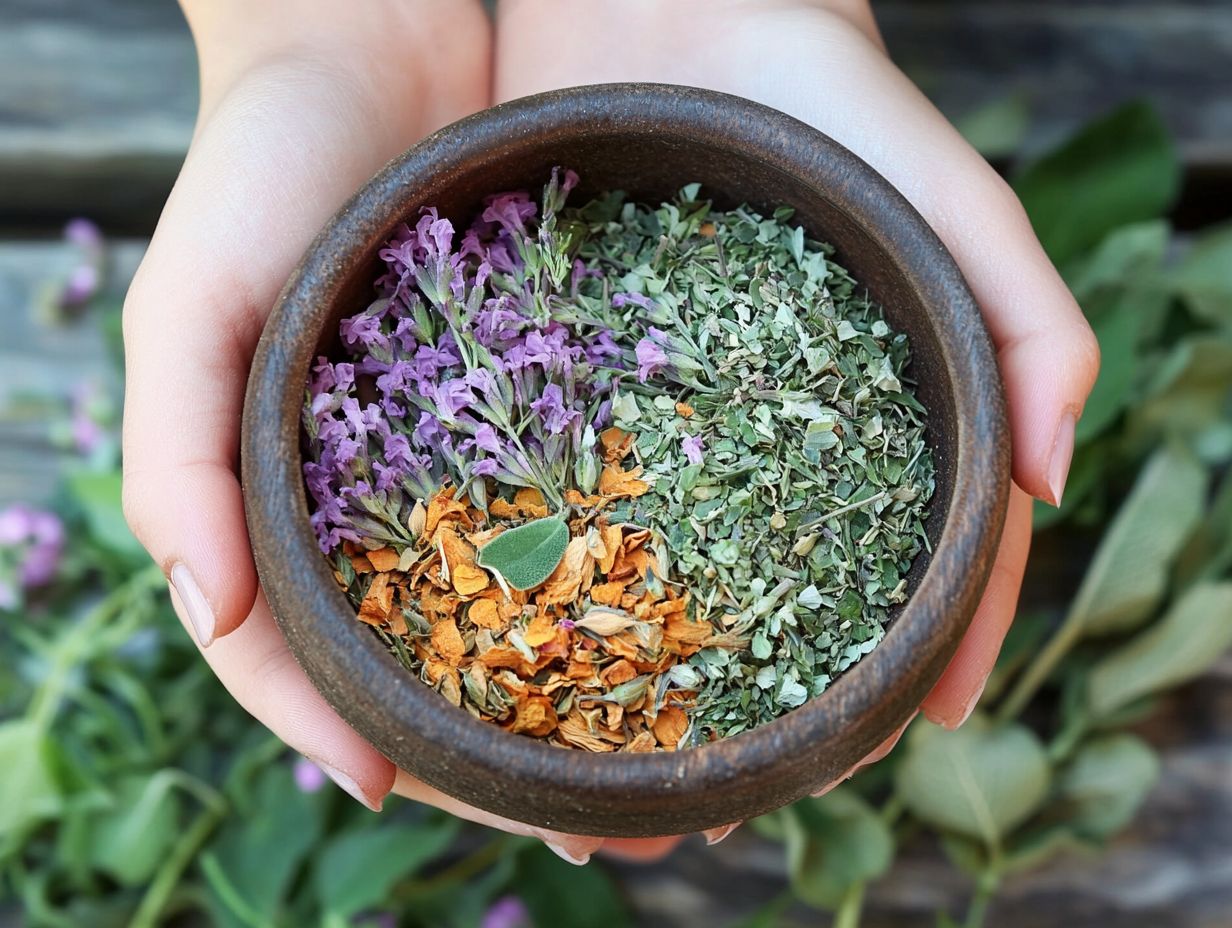
What are the top herbs for managing stress effectively?
Some of the top herbs for managing stress effectively include ashwagandha, passionflower, rhodiola, lemon balm, valerian root, and holy basil.
How does ashwagandha help in managing stress?
Ashwagandha is an adaptogenic herb that helps the body adapt to stress and reduces the production of cortisol, the stress hormone. It also has anti-anxiety and anti-depressant properties.
Can passionflower be used to manage stress in children?
Yes, passionflower is safe and effective for children to manage stress and anxiety. It can be taken in the form of tea, tincture, or supplement.
What are the benefits of using rhodiola for stress management?
Rhodiola is known for its ability to improve energy, focus, and mood, making it a great herb for managing stress. It also helps in reducing fatigue and improving sleep quality.
How does lemon balm help in managing stress?
Lemon balm has a calming effect on the nervous system and can help reduce stress and anxiety. It also promotes relaxation and improves sleep quality.
Is it safe to take valerian root for stress management?
Yes, valerian root is a safe and effective herb for managing stress and promoting relaxation. However, it is important to consult a healthcare professional before taking it, especially if you are on other medications.

